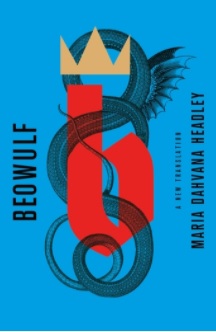Old English meets "Hamilton" in a new "Beowulf" translation
Medical Pharmaceutical Translations • Sep 2, 2020 12:00:00 AM

At first, New Yorker contributor Ruth Franklin’s review of a new translation of Beowulf doesn’t seem to be anything particularly out of the ordinary. Franklin discusses translator Maria Dahvana Headley’s personal connection to the poem, including her fascination with Grendel’s mother.
And then, around the middle of the review, we discover that there’s a twist.
The untranslatable opening word of Beowulf, “Hwæt”, is usually interpreted as an exclamation or a cry to get the attention of the reader (who would have been a listener, since the poem was originally recited for audiences). Translators have evoked this word with terms like “Lo!”, “Hark!”, or even chosen to leave it out entirely. Headley’s choice is… “Bro!”
The rest of Franklin’s review reveals that this translation of Beowulf is an extremely modern take, one that uses informal language, slang, obscenity, and even hip-hop-style boasting reminiscent of Lin Manuel Miranda’s hit musical Hamilton.
As with Hamilton, there is a lot of merit in taking (a) (hi)story that might seem remote and difficult for many people to connect with, and bringing it into their own terms. Headley also argues that the earliest known manuscript of Beowulf was partially destroyed in a fire, so who can say what the poem was truly originally like?
This seems a bit of a stretch to explain some of the choices she’s made. Still, in a world where a number of more traditional Beowulf translations exist, why not have one like this?
On the other hand, by using contemporary cadences and vocabulary, Headley runs into a problem: She may bring the poem to life for modern audiences, but how long will it be before these terms and turns of phrase are also outdated?
Imagine reading a jive translation of Shakespeare. It might have meant something to cool people in the 1970’s and ‘80’s, but it would feel like a relic today. Although Headley’s vocabulary choices are more general, there is a near certainty that at some point, her translation, too, will feel like a time capsule, whose language will distract readers from its purpose.
Whatever your thoughts on Headley’s translation of Beowulf, it does make us think about what it means to translate and modernize literature from bygone days.
Read on to learn more about Headley’s Beowulf: A New Translation, as well as some interesting insights about the portrayal of Grendel’s mother throughout the poem’s history.
Contact Our Writer – Alysa Salzberg
